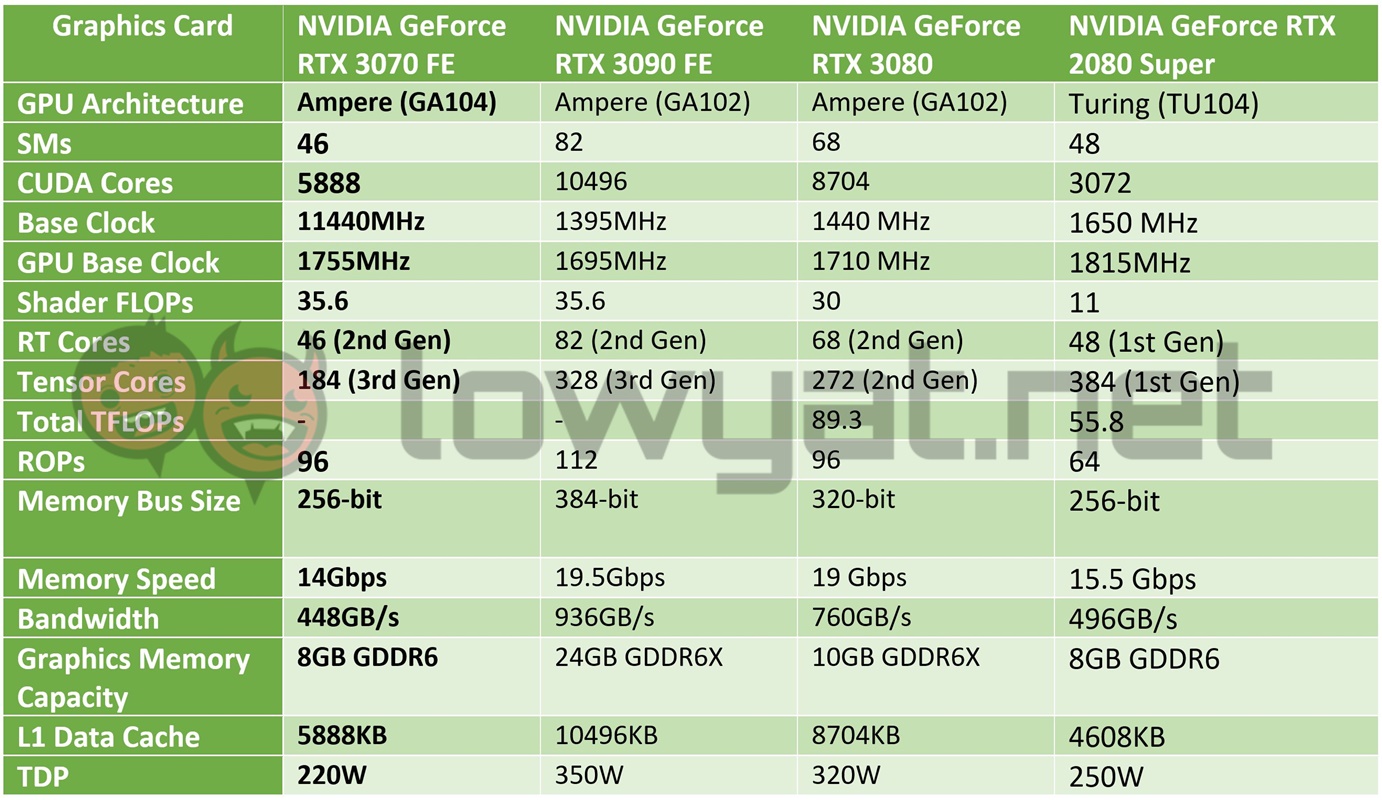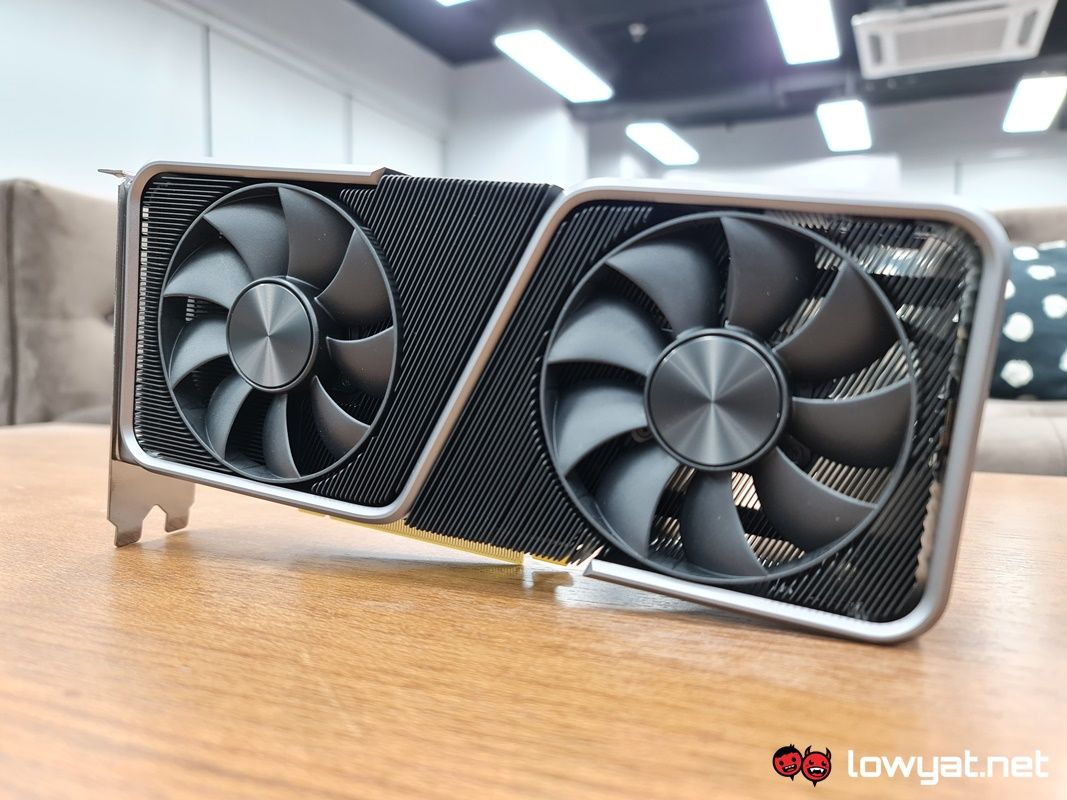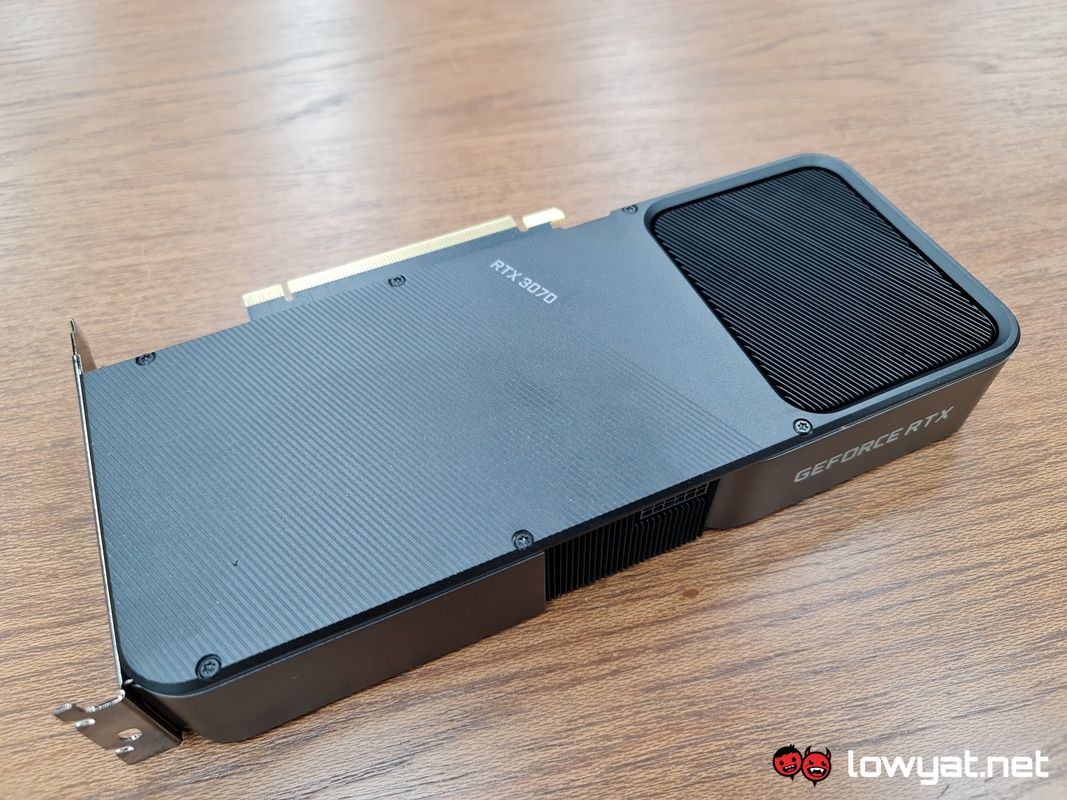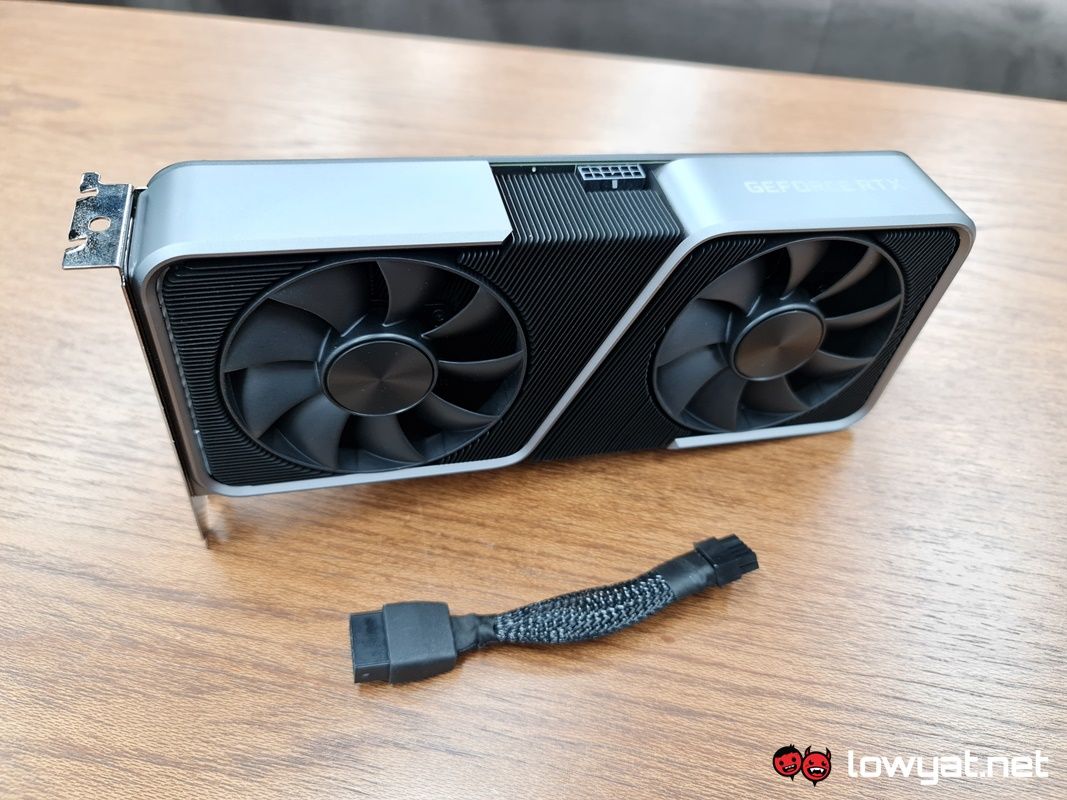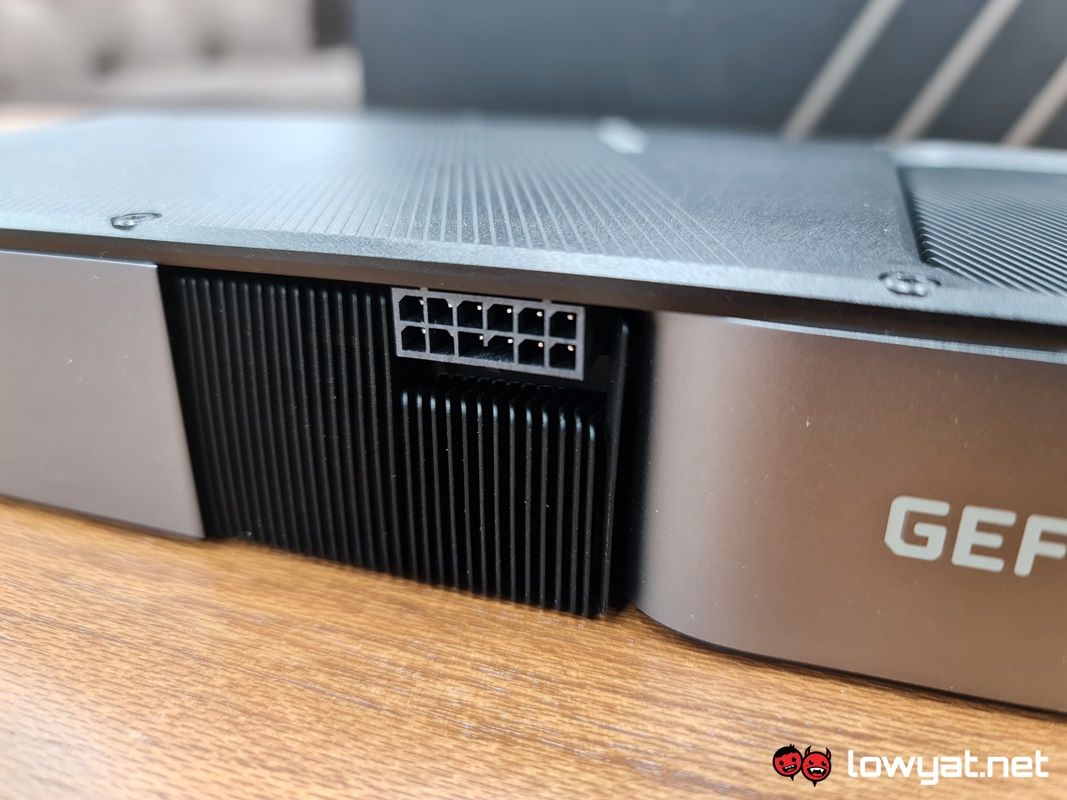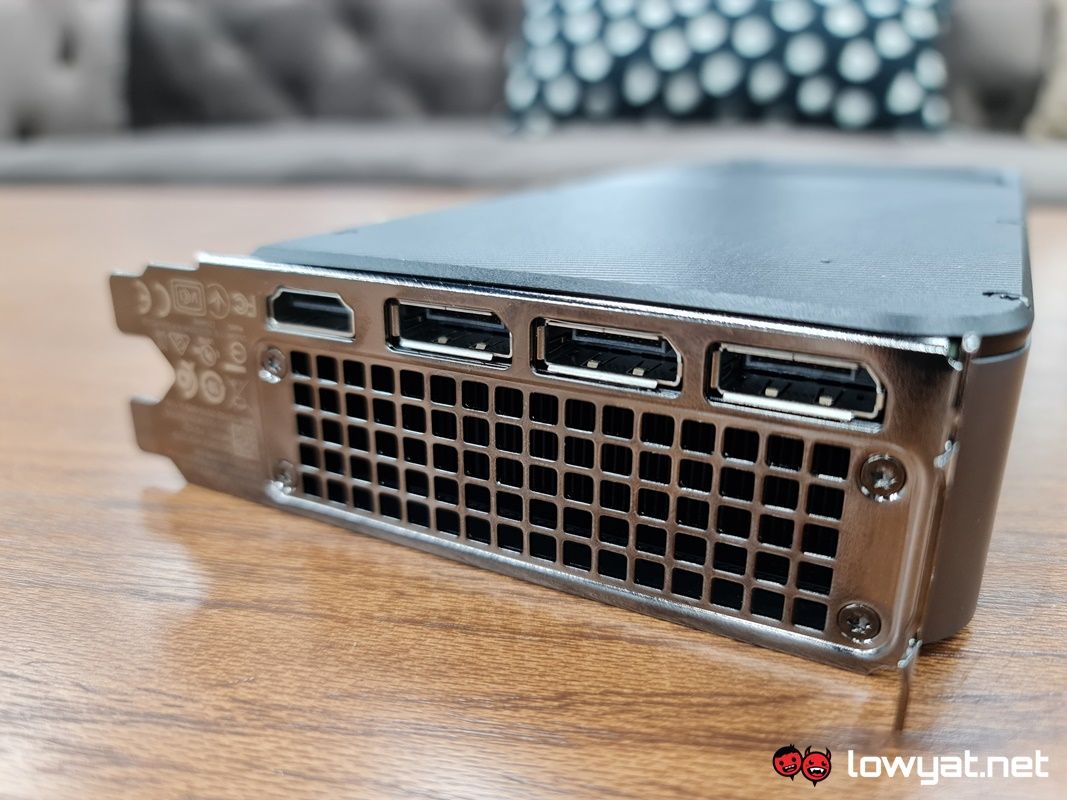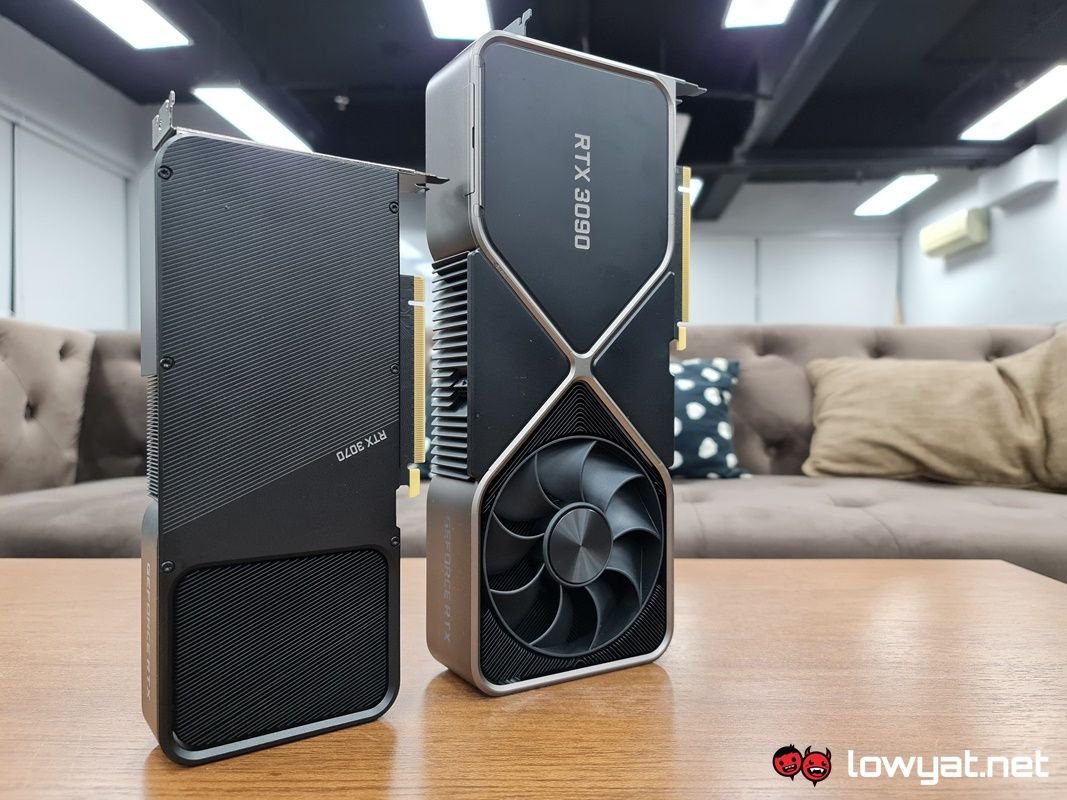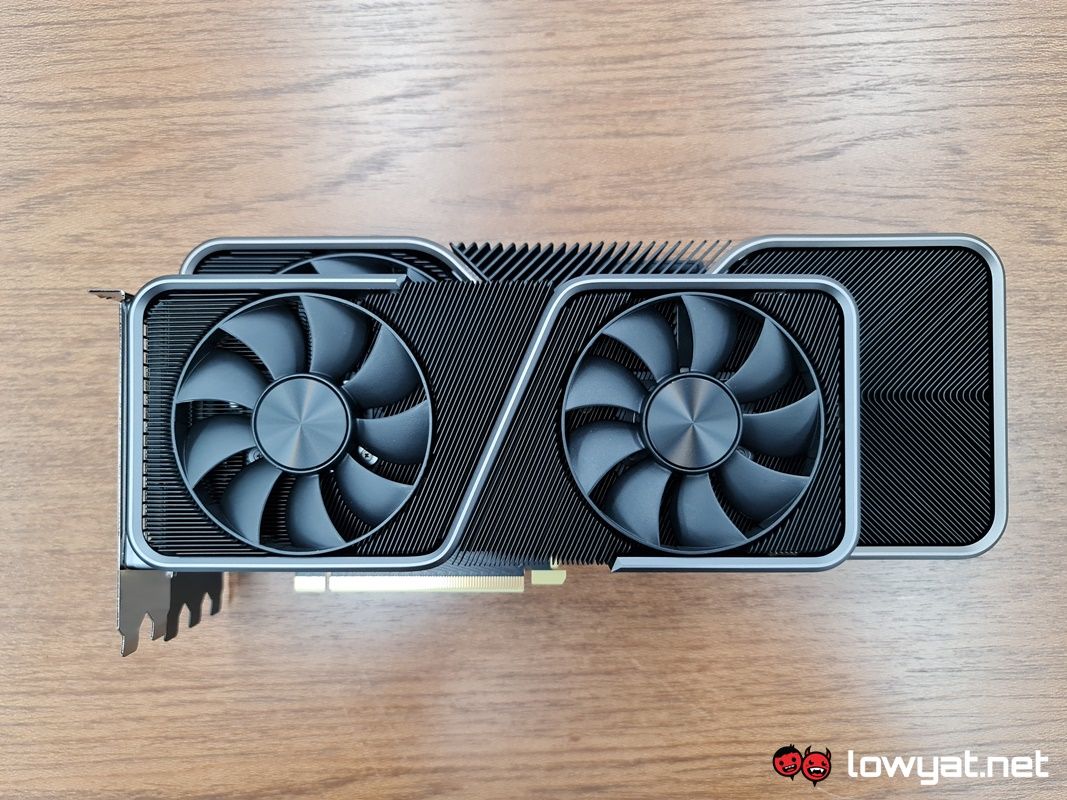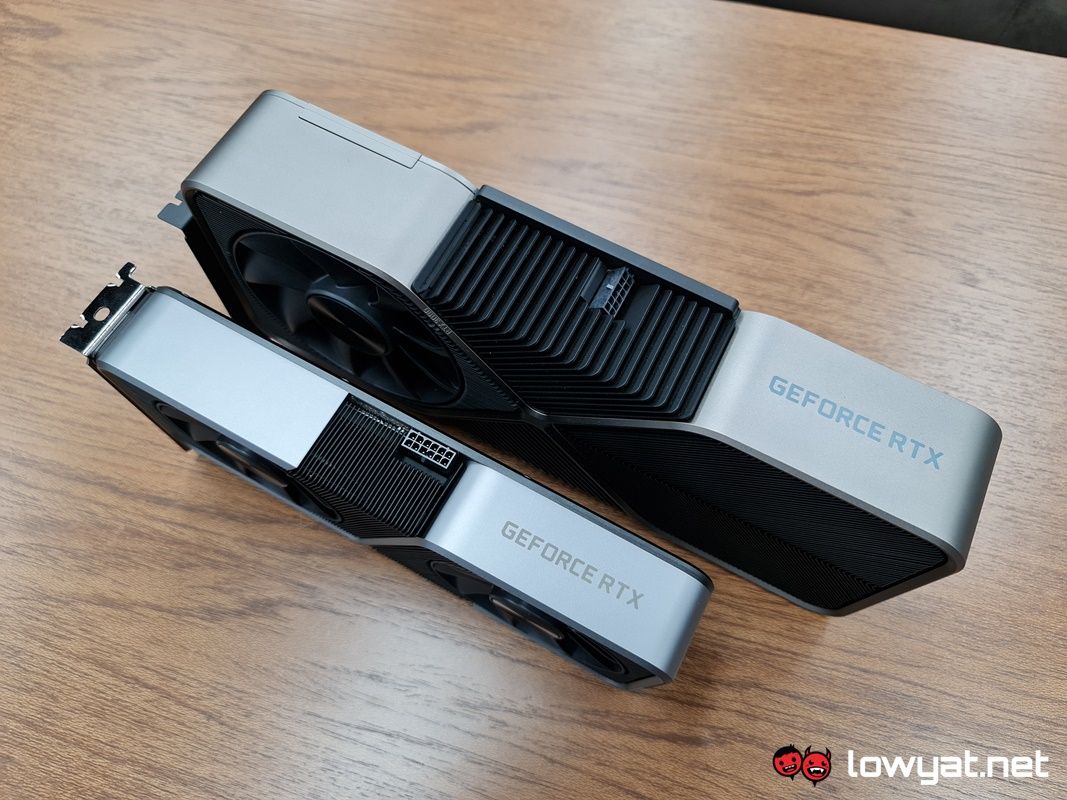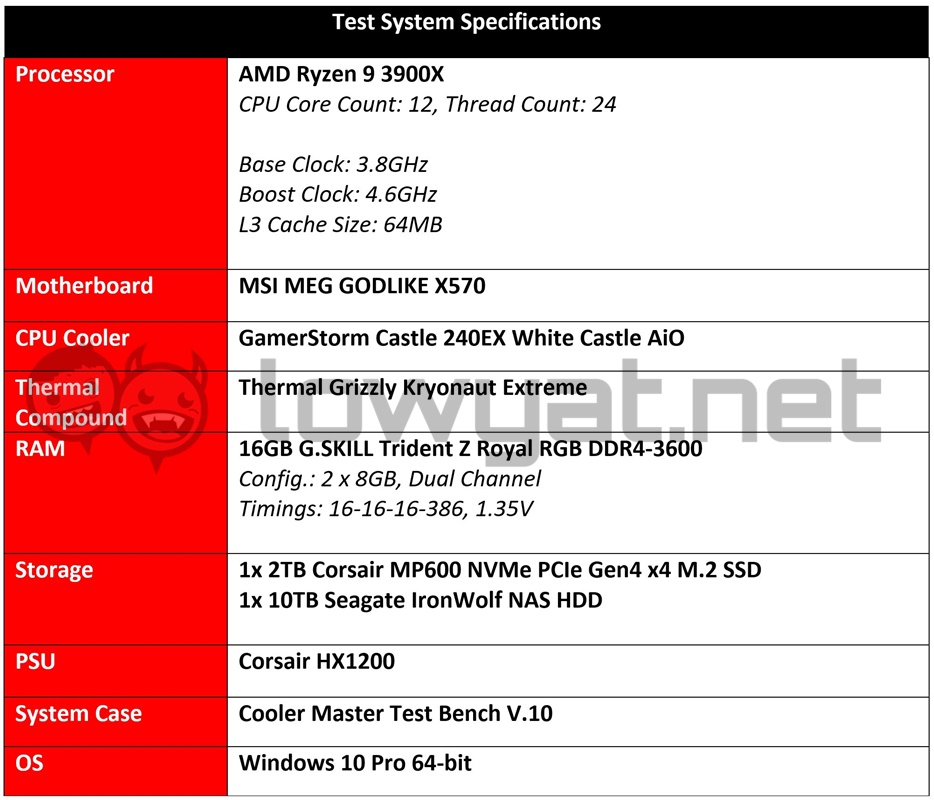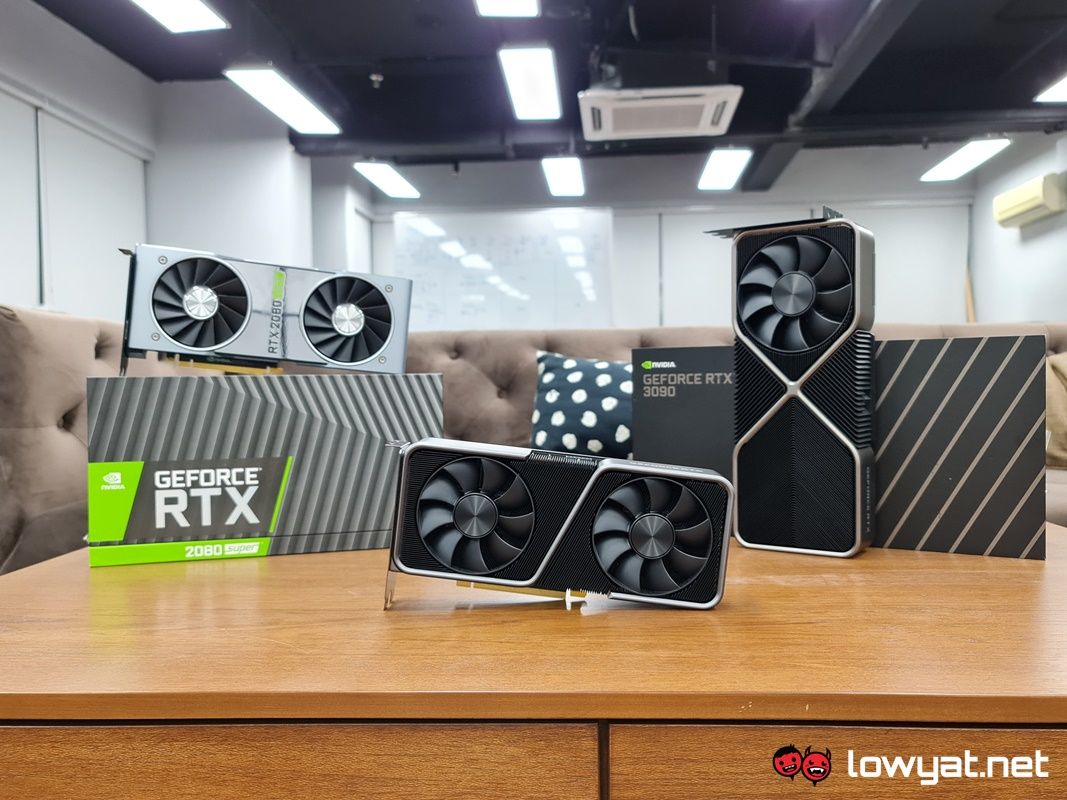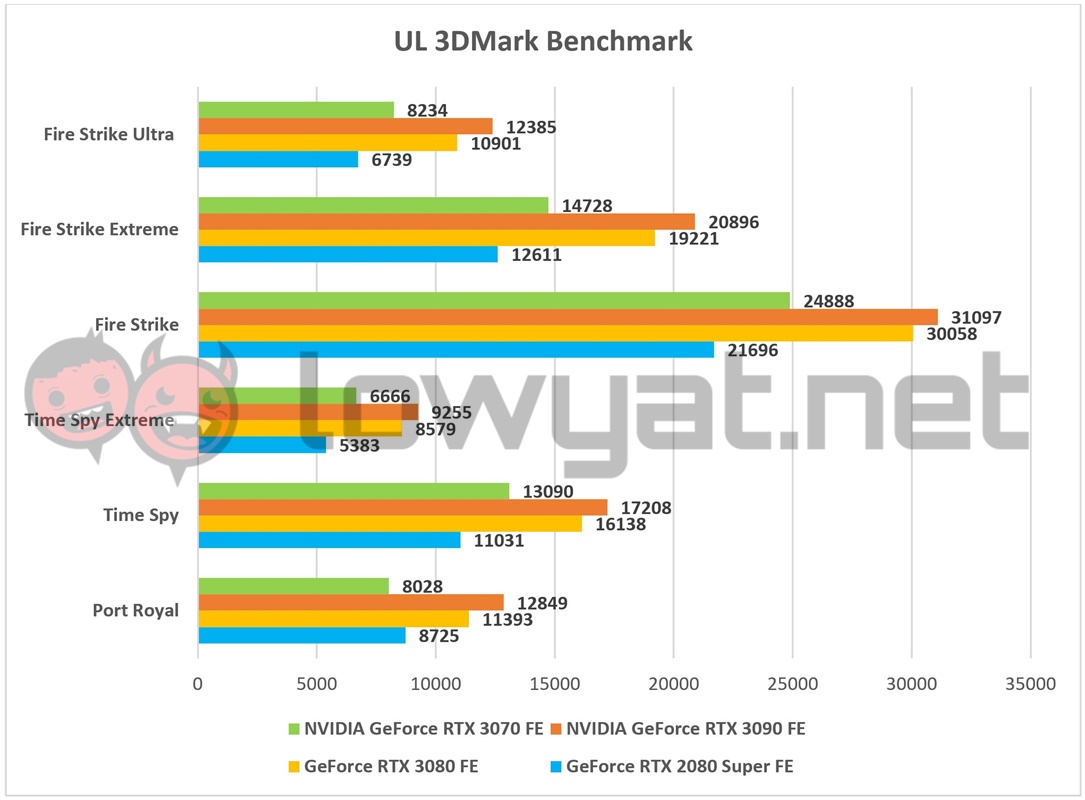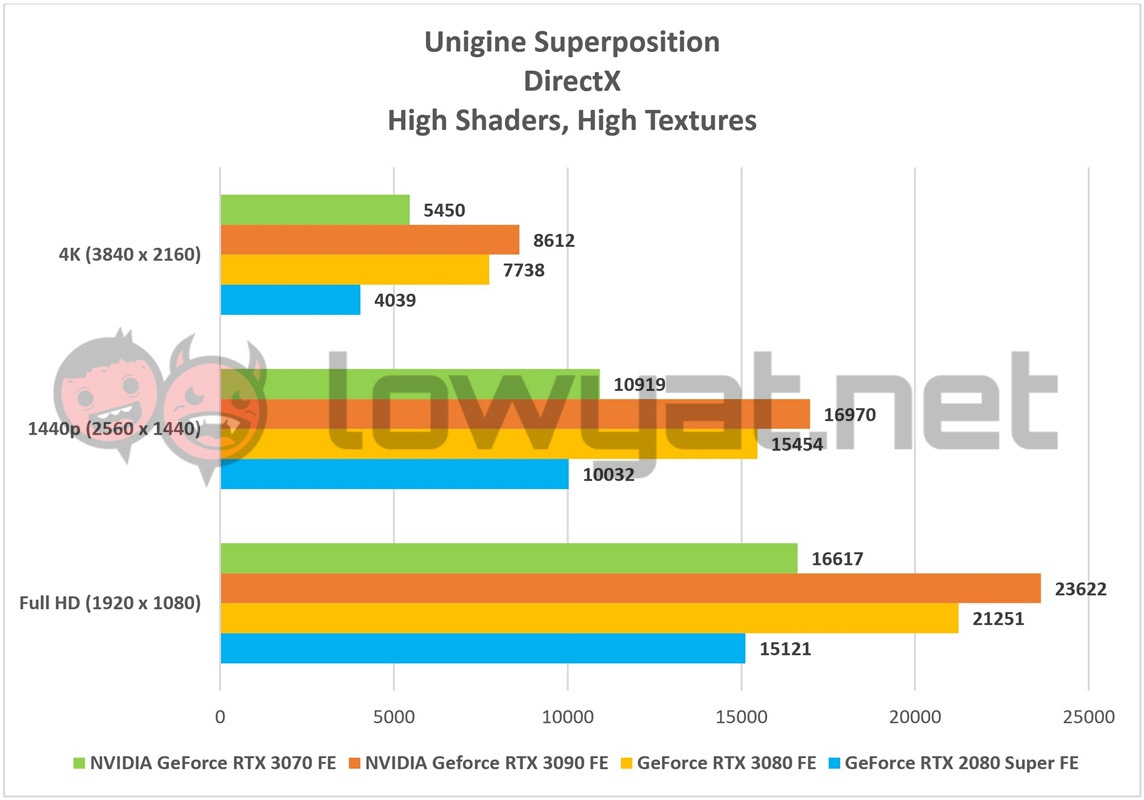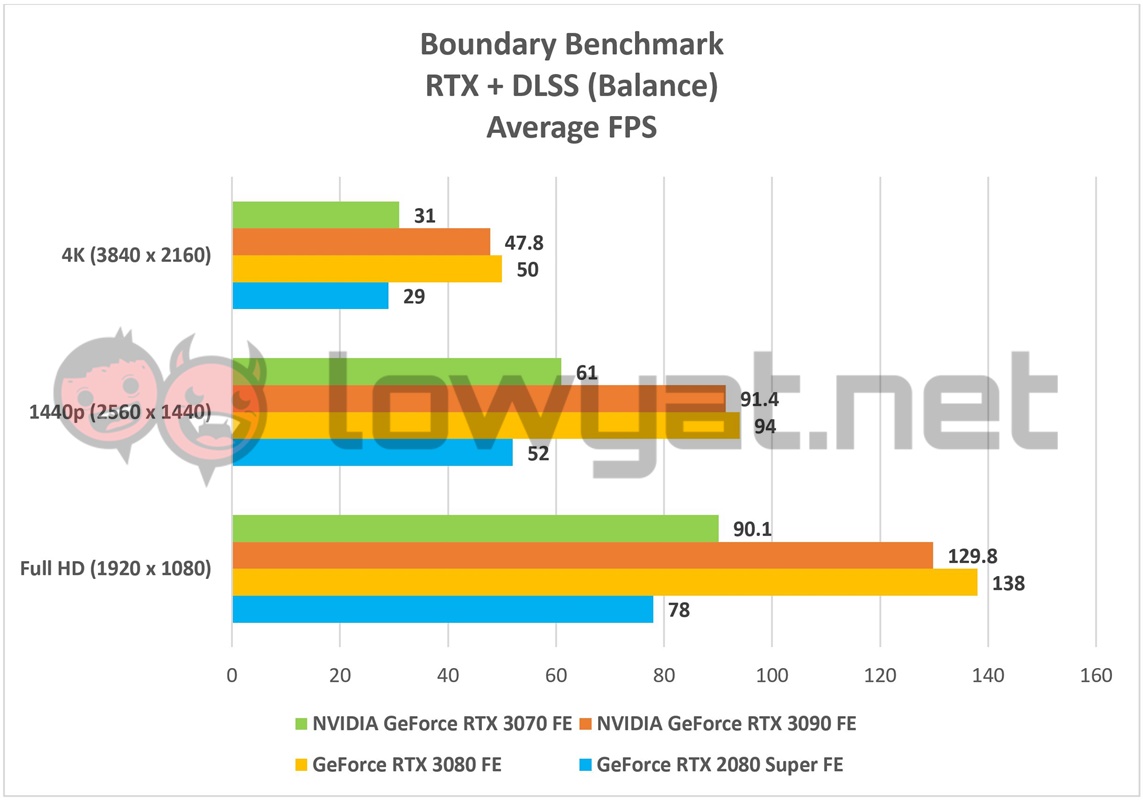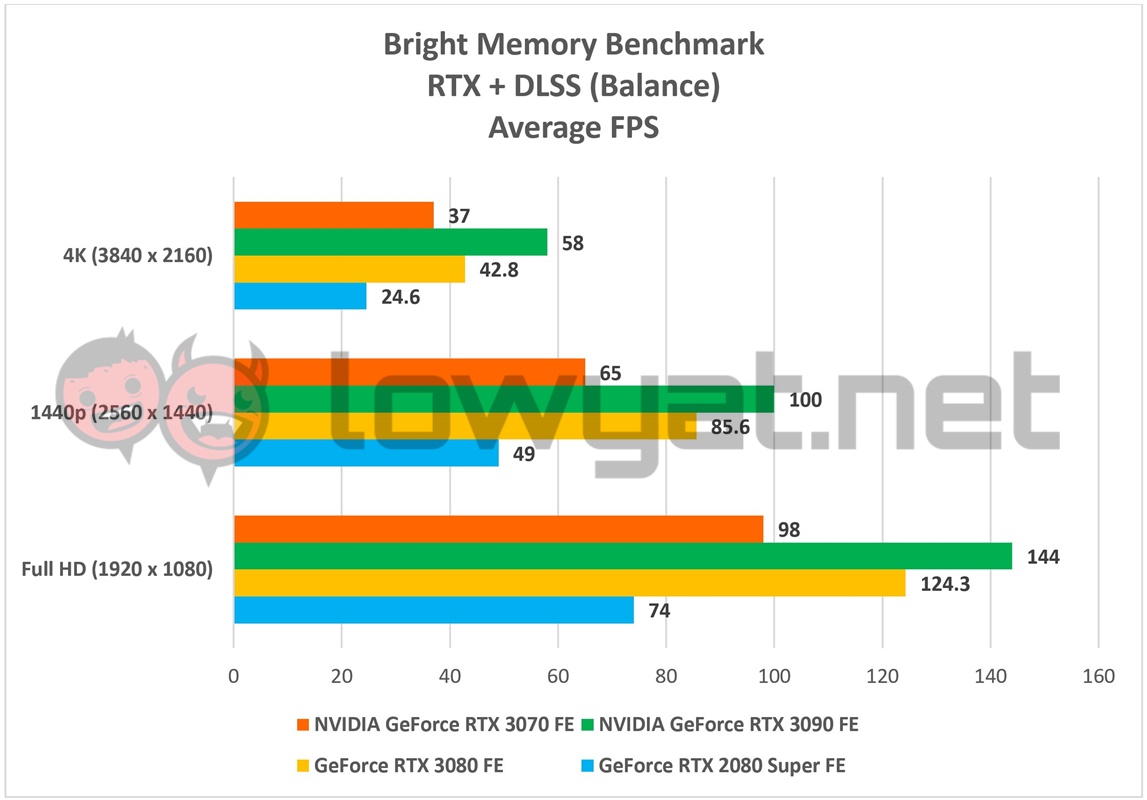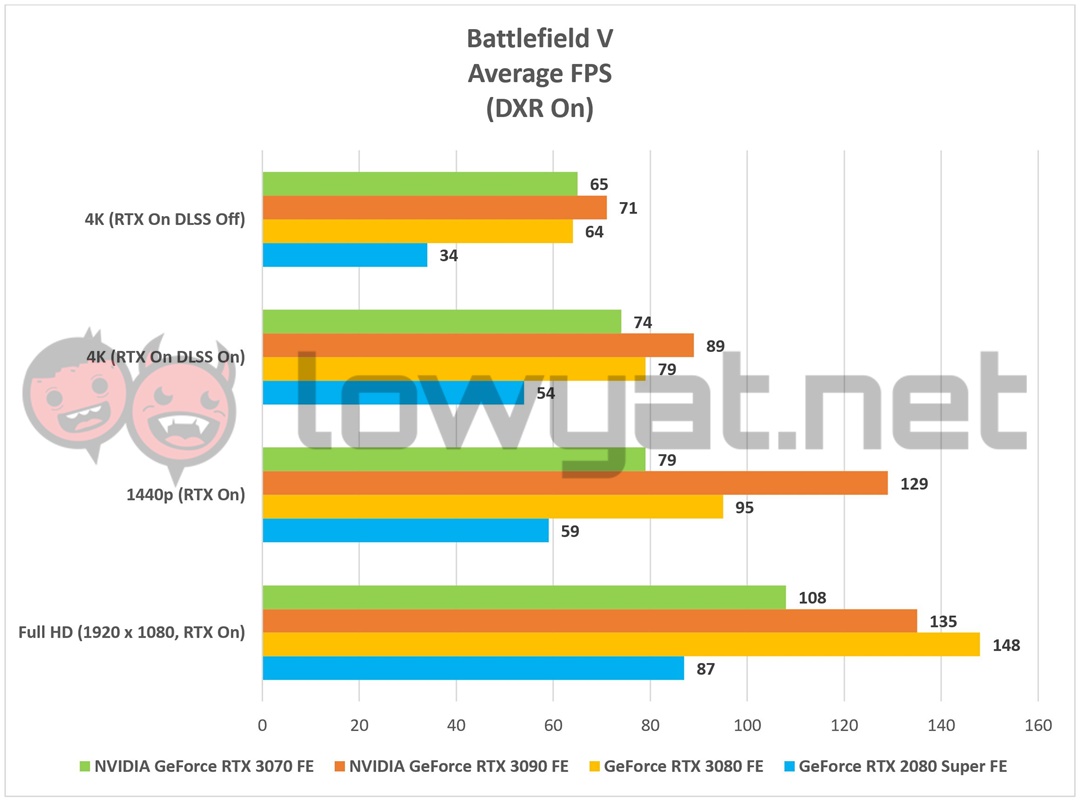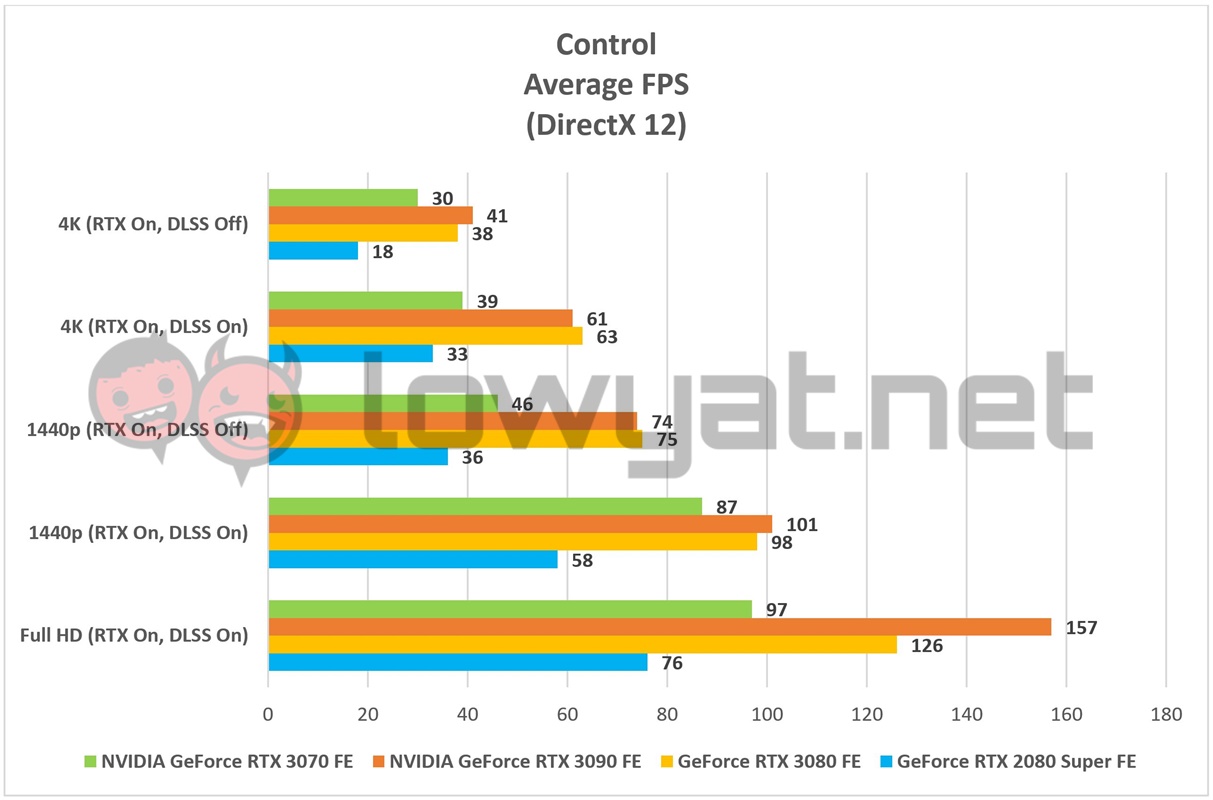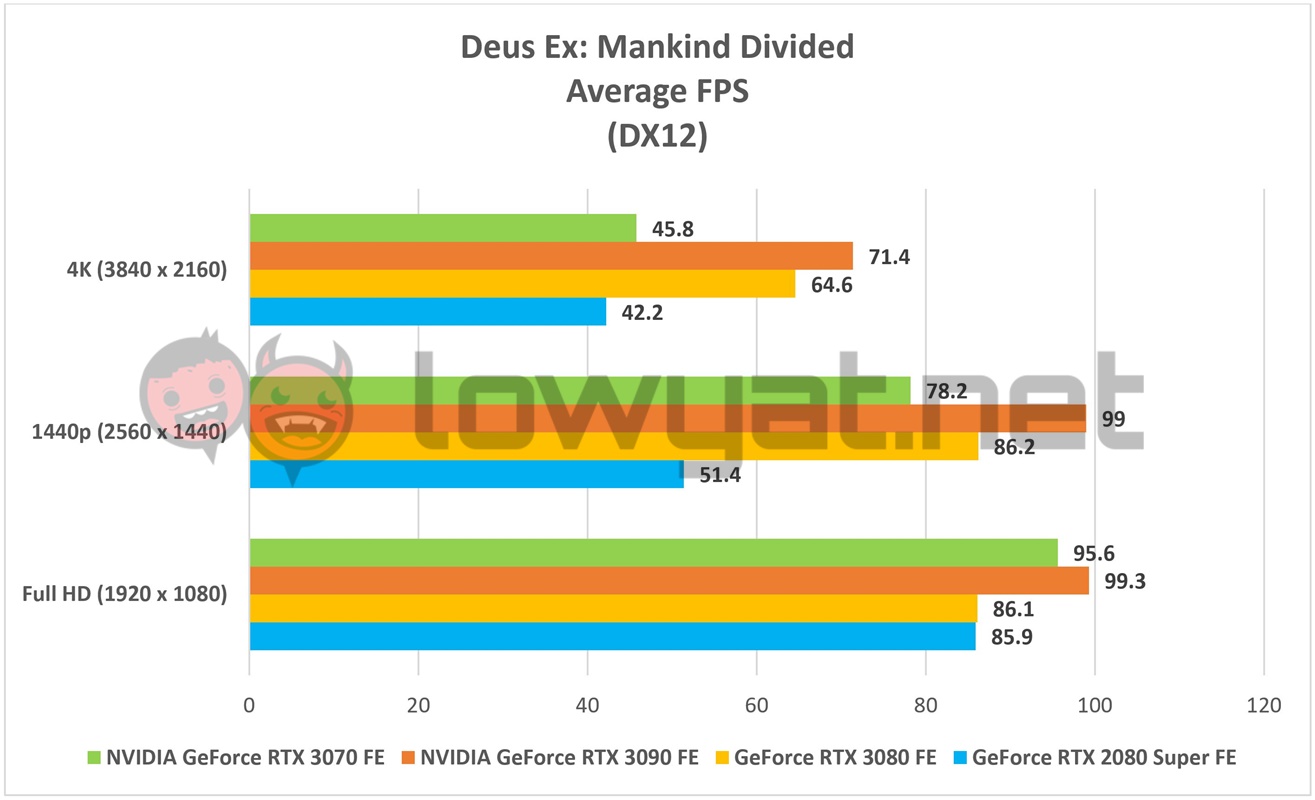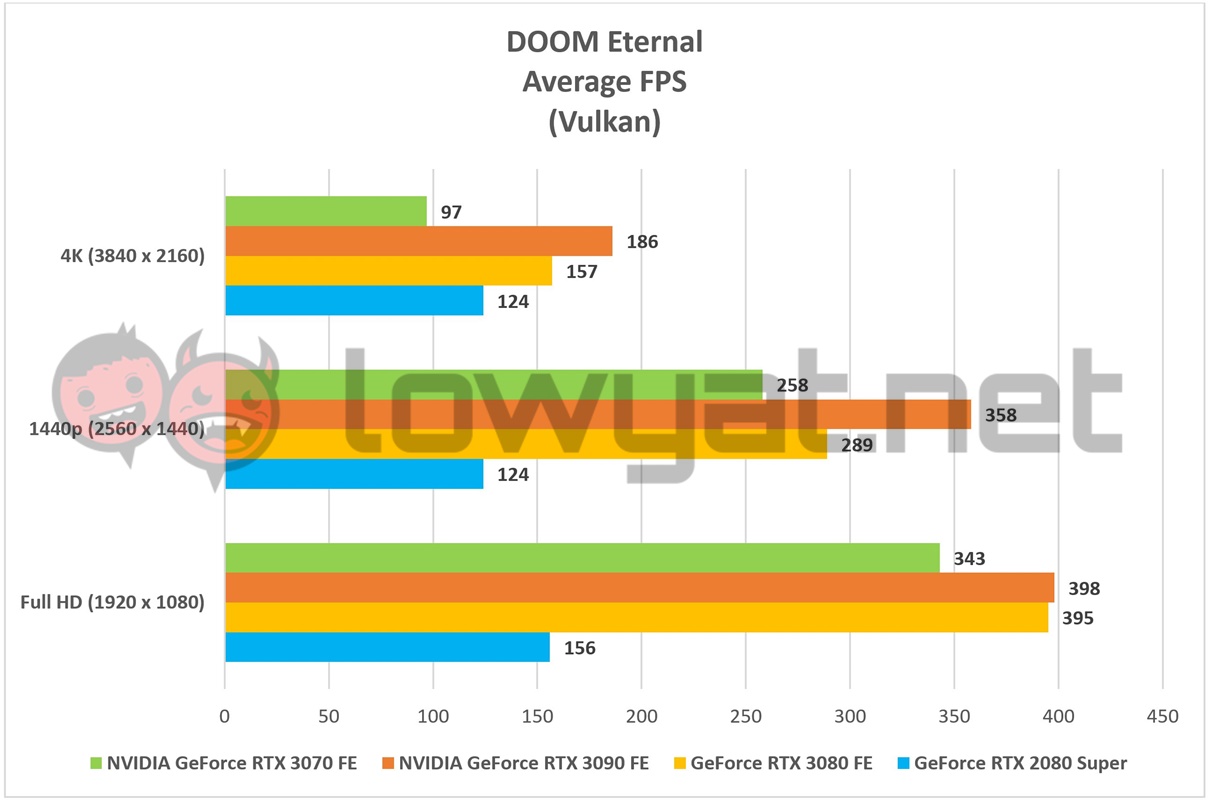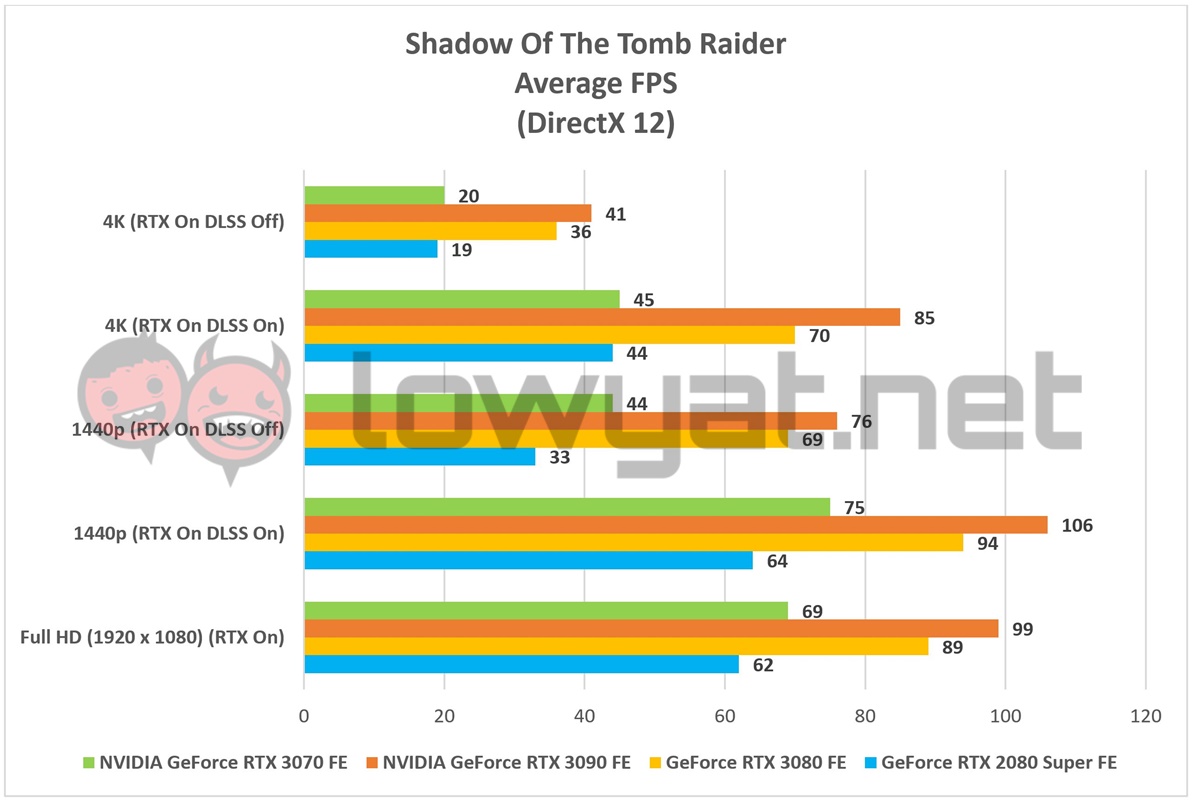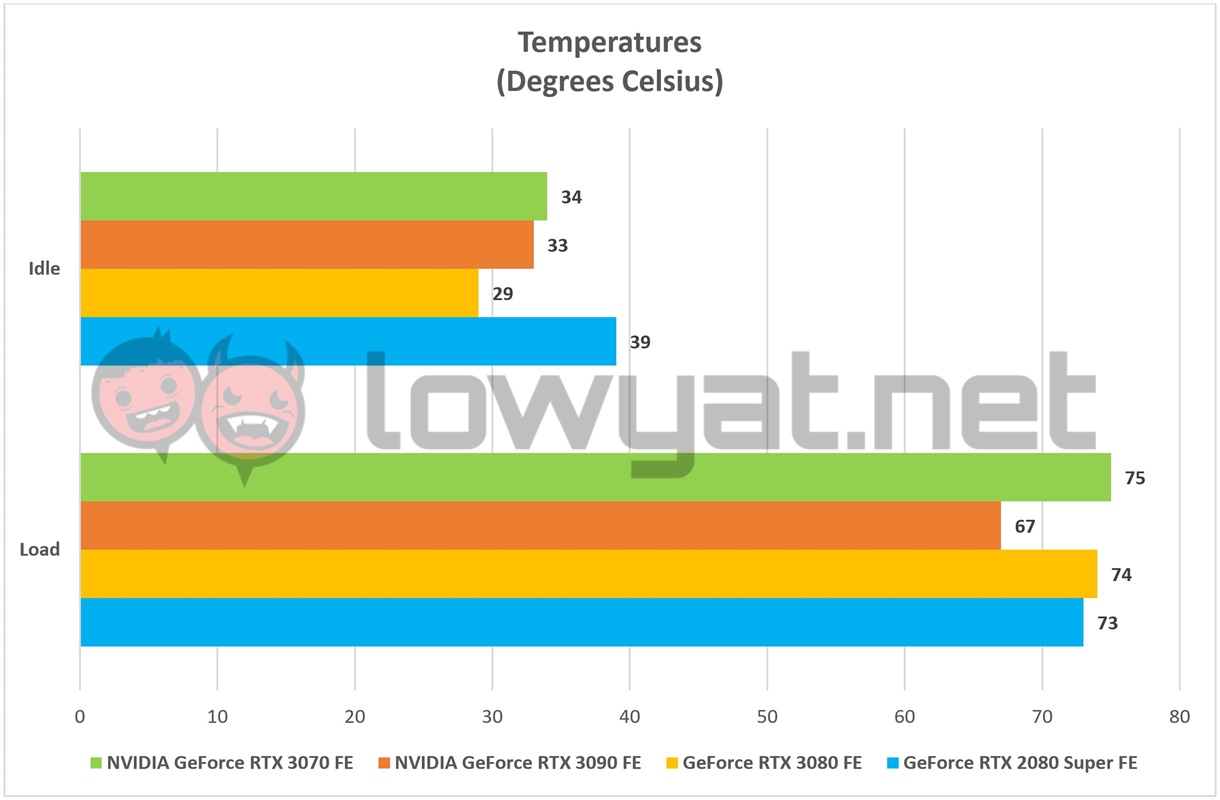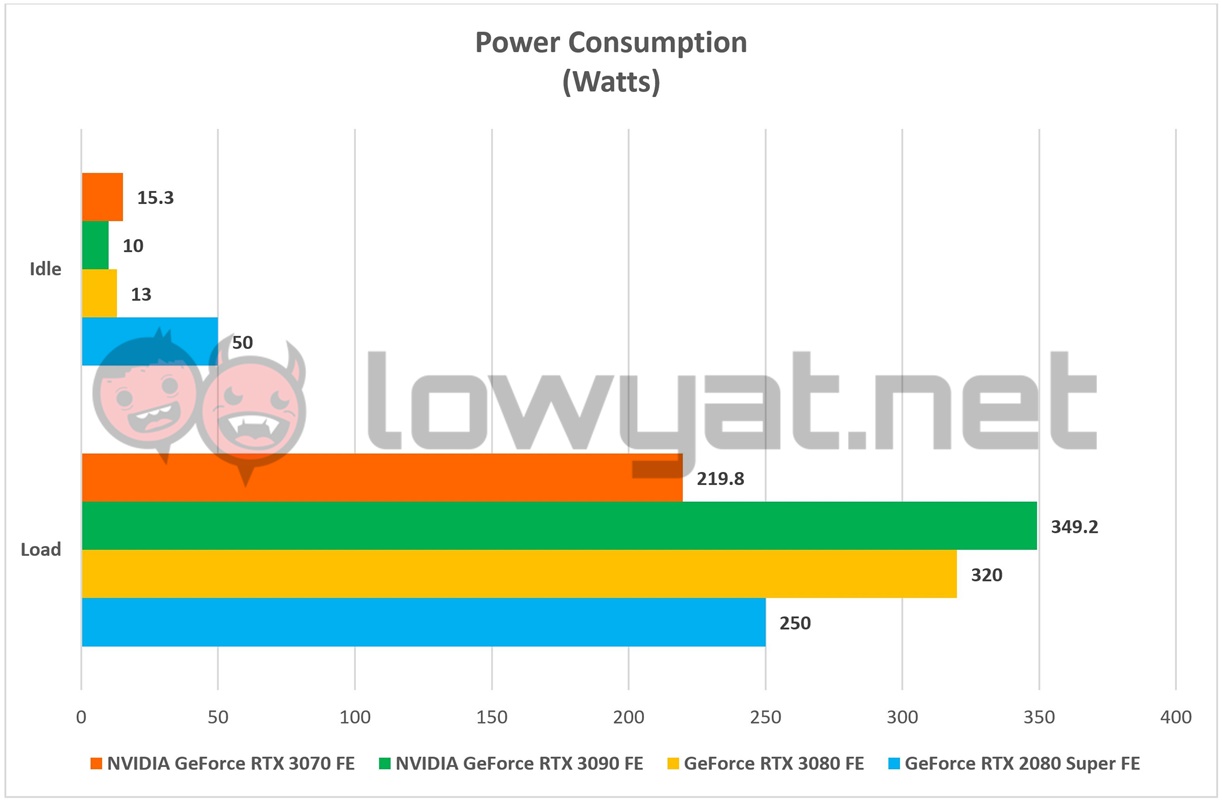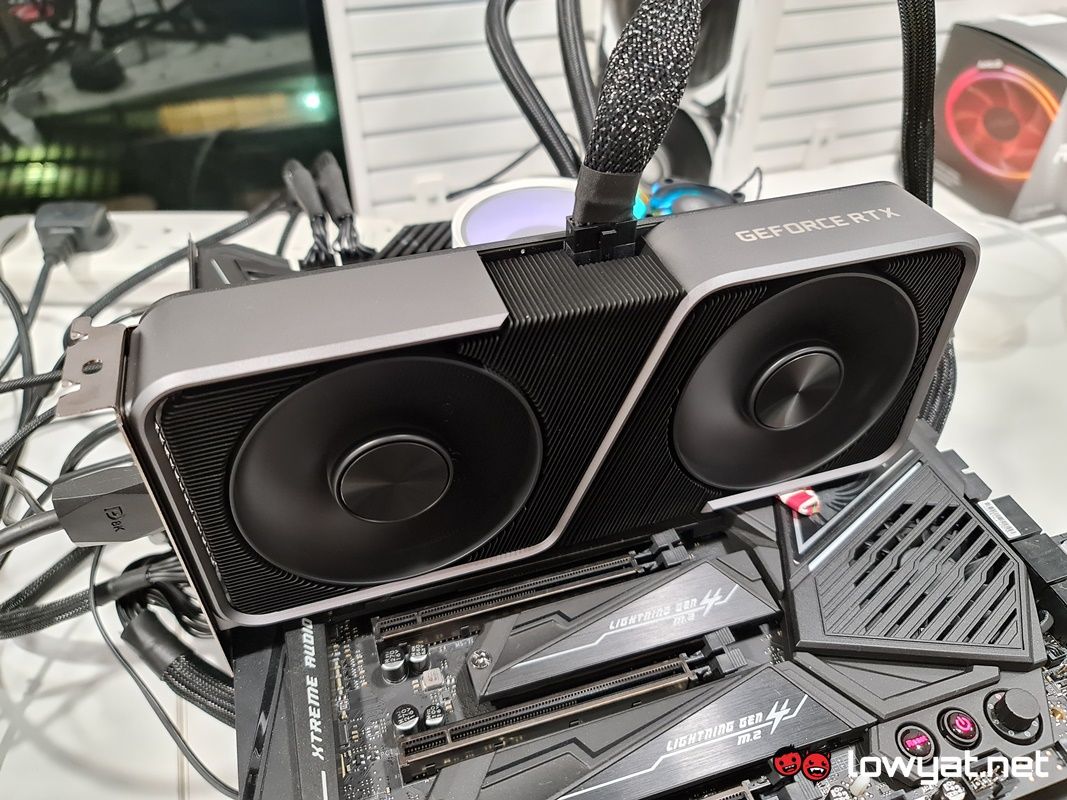That said, there’s still a couple of days left before the AiB partner versions of the RTX 3070 will be available to hit the shelves, so we’ll just have to wait and see just how it will turn out. On that note, NVIDIA was gracious enough to send us the Founders Edition of the card, in order for us to see what kind of performance we can expect from the RTX 30 Series’ “mid-range” card. So, without further ado, let’s get started.
Specifications
Design
As you have seen since its inauguration, the design of the RTX 3070 FE is similar, yet vastly different from its bigger and more powerful brothers. It still uses NVIDIA’s Dual Axial Flow Through cooling technology and unique heatsink design, but instead of a push-pull configuration seen on the RTX 3080 and RTX 3090, both fans can be found on one side. Again, the card’s design means that air is pushed through the fins at the end, where it is then exhausted – assuming the card is installed within a chassis – either through the rear or top of the casing. While the other fan exhausts air out the back of the card.
Relative to design, the RTX 3070 looks and feels tiny compared to its brothers. To put it in another way: if the RTX 3070 FE was a collegiate athlete, the RTX 3080 would easily qualify as a CrossFit athlete, while the RTX 3090 is essentially an extreme body-builder jacked up on steroids. Like all FE cards, the RTX 3070 FE is not spared from NVIDIA’s special 12-pin PCIe port, but does come bundled with the special adapter. The good news is that unlike other cards, the RTX 3070 FE only requires one 8-pin PCIe connector to run.
Underneath the shroud and massive heatsink, the RTX 3070 FE is powered by NVIDIA’s 8nm Ampere GPU architecture, but instead of GDDR6X, it runs on the older GDDR6 graphic memory standard.
Having said that, its performance – as you will see in the benchmark section below – actually is capable of achieving results similar to that of last generation’s Turing-powered RTX 2080 Super and RTX 2080 Ti.
Testbench
As with the RTX 3080 FE and RTX 3090 FE, my testbed remains the same and no changes to the components have been made. The GeForce driver I am using to test the RTX 3070 FE is version 456.96 provided by NVIDIA as, at the time of writing, no official drivers had been released. As for the cards, I will be comparing the RTX 3070 FE with the RTX 3080 FE, RTX 3090 FE, and a GeForce RTX 2080 Super.
Benchmarks
Out of the box, the RTX 3070 FE both clearly and absolutely dominates the RTX 2080 Super across the board in the synthetic benchmark tests. In fact, the only test that it lost out to the Turing-powered card, surprisingly, was the Port Royal test on 3DMark. Even in the RTX and DLSS-driven Boundary and Bright Memory benchmarks, the card still pulls ahead of the last-generation Turing GPU, even if that lead is merely a few frames.
When it comes to gaming with the RTX 3070 FE, it’s a similar David and Goliath story, as the card clearly outpaces the RTX 2080 Super all four titles and all three display resolutions. Having said that, I think it is important to address the elephant in the room, and that is the card’s performance sweet spot. Yes, the RTX 3070 FE is able to sustain more than 60 fps in some titles at 4K resolution, but even then, those numbers tend to dip below that line, while in games such as Control, even pushing past the 40 fps mark is a feat in and of itself. Mind you, that’s with DLSS turned on as well.
Dropping the resolution down a notch to 1440p is where the RTX 3070 FE really shines. It’s at this resolution that the card really sings, and when the majority of the titles are able to sustain acceptable framerates, both with NVIDIA’s RTX and DLSS features turned on. On a somewhat cheerier side note, I can report that titles like DOOM Eternal and Deus Ex: Mankind Divided (DXMD) seem to play nice with the RTX 3070 FE, with both titles actually running nearer to the 100 fps mark. And yes, I know that the RTX 2080 Super did register a higher average frame count.
One thing I did notice about the RTX 3070 FE is that consistency is an ongoing trend with the card; compared to the RTX 3080 and RTX 3090, the card’s frames fluctuate less than what I would typically see in the other two cards.
Temperature And Power Consumption
While in operation, the RTX 3070 FE’s idle temperature typically hovers somewhere between 34°C and 37°C, while running at a full load sees it taps out at 75°C and never seems to go any higher. It’s a fairly impressive feat, but to be fair, I am testing the card in an open testbench and on top of that, the ambient temperature in my lab typically hovers between 18°C and 20°C at any given time. Enclosed in a chassis and assuming it has proper ventilation, I am certain the ambient temperature within the enclosure would cause the card’s ambient temperature to rise between an additional 15 to 20°C. While the temperature running at full load may increase by approximately 5°C.
As for power consumption of the RTX 3070 FE, I find nothing out of the ordinary with it, as the chart shows that it is as advertised by NVIDIA.
Conclusion
As a point of admission, due to my having tested both the GeForce RTX 3080 and RTX 3090 prior, the performance of the RTX 3070 doesn’t feel as jaw-dropping or instill the same sense of awe in me, and understandably so. Objectively, however, I cannot argue that the card is, in and of itself, impressive. With a starting SRP of RM2399 and a performance that is truly on par, if not better in some applications than last generation’s RTX 2080 Ti and RTX 2080 Super, the RTX 3070 FE is basically a 1440p sweet spot. For gamers that want to graduate from Full HD gaming, but not quite all the way to 4K. As I have mentioned, before you’re not going to find the Founders Edition of the RTX 3070 here in Malaysia, so you’ll have to depend on NVIDIA’s AiB partners and their custom-cooled versions of the card, provided they currently have the necessary stock for it.
